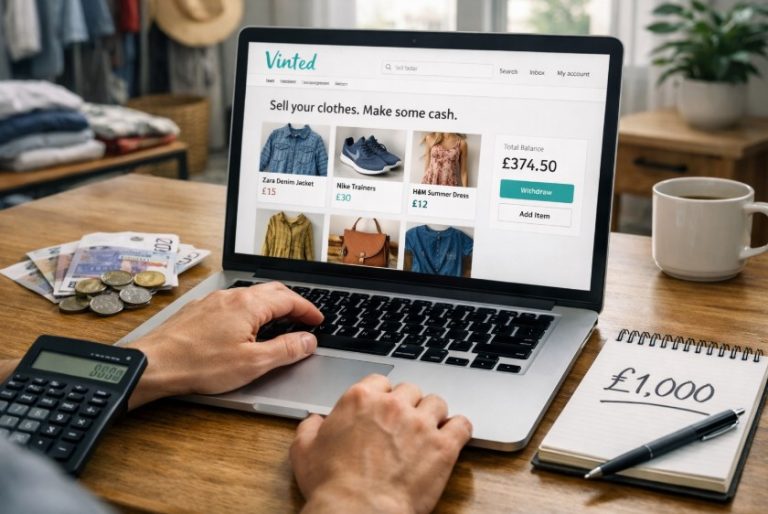Are dividends a realistic goal for startups? When should a growing company start rewarding its shareholders with financial returns? For UK entrepreneurs and investors alike, these questions are not just theoretical; they’re critical to understanding how startup financing and investor relations evolve over time.
While dividends are a common feature in established corporations, they remain uncommon in the startup world. The reasons lie in the nature of startup economics: most new companies prioritise growth over profitability, and even when profits emerge, they are often reinvested into expansion.
However, under the right circumstances, startups can and do issue dividends but this happens far less frequently than many assume.
This article explores what dividends mean in the context of startups, when they become feasible, why they are often delayed, and what conditions must be met before a dividend policy can be adopted.
What Is a Dividend in the Context of a Startup?

A dividend is a distribution of a company’s profits to its shareholders. In a startup, this works just as it does in any other business: profits can either be retained to grow the business or distributed as dividends to reward investors.
These payments are usually made in cash, calculated on a per-share basis, meaning the more shares an individual owns, the more they receive.
In the startup world, however, dividend payments are uncommon. Most startups aim to scale rapidly and capture market share, which demands reinvestment of profits.
The idea is to grow the business to a point where it can generate much larger future returns often through a sale or public offering, rather than providing regular income to shareholders in the short term.
While established companies may implement stable dividend policies as a way to share earnings with shareholders, startups usually need every available resource to fund development, staffing, marketing, and operations.
Why Don’t Most Startups Pay Dividends Early On?
There are several interconnected reasons why dividend payments are not a feature of most startups, particularly in their formative years. First and foremost, many startups operate at a loss during their early stages.
This is not necessarily a bad sign it’s often a strategic decision designed to prioritise user acquisition or product development before profitability.
Startups typically pursue an aggressive growth model, backed by external capital. The expectation among investors is not short-term income but long-term capital appreciation.
In addition, the startup business model is inherently risky and capital-intensive. Reinvesting all profits or operating at a loss is often necessary to remain competitive. Paying dividends prematurely could weaken a startup’s cash flow and limit its ability to respond to market demands or emergencies.
Even startups that do begin generating revenue early on often choose to reinvest those funds back into the company. The goal is to reach a sustainable growth trajectory or to position the startup for a high-value exit, such as a merger, acquisition, or public listing.
When Can a Startup Start Paying Dividends Legally in the UK?

In the United Kingdom, dividend payments are tightly regulated to protect companies and shareholders from financial mismanagement. Startups can only pay dividends under certain legal and financial conditions, regardless of whether shareholders demand them.
The following criteria must be met:
- Distributable Profits: The company must have accumulated profits available for distribution, as shown in its latest financial statements.
- Solvency: The company must pass a solvency test, proving it can meet its current and future liabilities even after paying the dividend.
- Proper Declaration: The board of directors must approve the dividend, and in some cases, shareholders must confirm it during a general meeting.
Dividends paid without fulfilling these requirements are considered unlawful dividends. Directors who approve illegal dividends may be personally liable to repay them, making caution and accurate financial reporting essential.
How Do Startups Typically Use Profits Instead of Paying Dividends?
When startups become profitable, a significant milestone in itself, they typically opt to retain those profits within the business. This reinvestment is a key strategy for scaling operations and improving competitive positioning.
Startups may reinvest in the following areas:
- Product development or expansion
- Technology upgrades or infrastructure
- Talent acquisition and team growth
- Market entry into new regions
- Customer acquisition campaigns
Each of these areas is considered a growth enabler. For a startup, the opportunity cost of distributing profits as dividends is high. The belief is that reinvesting today will lead to a higher valuation and better shareholder returns in the future.
What Role Do Investors Play in a Startup’s Dividend Policy?
Investors in startups especially venture capitalists and angel investors, are generally not expecting dividends. They invest capital in exchange for equity, aiming for substantial capital gains through a liquidity event such as a sale or IPO.
Most professional investors advise startups against paying dividends, at least in the early years, because:
- Reinvestment supports higher valuation
- Dividends reduce retained earnings and weaken financial flexibility
- Tax implications may make dividends less attractive than capital gains
In many cases, investment agreements explicitly restrict dividend payments unless approved by major shareholders. This aligns all stakeholders toward the common goal of long-term value creation.
Is Revenue Enough for a Startup to Pay Dividends?

Revenue alone is not a sufficient indicator of dividend readiness. A startup can generate significant revenue but still operate at a loss due to high operational costs or reinvestment activities.
Profitability, particularly net profit after tax, is the key metric that determines whether a company can legally and practically pay dividends. Startups often prioritise scaling revenue while accepting short-term losses, which delays any dividend potential.
Even when profits emerge, founders and boards may decide that the best use of funds is reinvestment rather than distribution. Dividends may only become part of the strategy once growth stabilises and the company no longer requires aggressive capital deployment.
When Do Startups Generally Start Paying Dividends?
The timeline for dividend payments in startups varies greatly depending on industry, business model, market conditions, and internal financial performance. However, startups typically consider dividends only when they reach a stage of financial maturity, often years after incorporation.
Common stages for dividend considerations:
| Phase | Dividend Status | Rationale |
| Seed | Not applicable | No revenue or profit; high risk |
| Early-stage | Unlikely | Revenue may exist, but losses are common |
| Growth | Possible (rare) | Profitability may emerge, but reinvestment preferred |
| Late-stage/Mature | Likely (case-dependent) | Profitable with stable cash flow and low growth need |
In the UK, dividend issuance might begin 5 to 10 years into a startup’s life, if the company becomes self-sustaining and generates regular profits.
Are There Any UK Startups That Pay Dividends?
While most startups do not pay dividends, there are some exceptions, particularly among companies that have transitioned into scale-ups or established mid-market businesses. These firms may adopt a hybrid model, reinvesting in growth while issuing occasional or modest dividends.
Notable UK examples include:
- Funding Circle: Known for becoming profitable and initiating returns to shareholders after several years of operations.
- Xero UK: Although part of a larger international entity, Xero has paid dividends after achieving profitability and financial stability.
- BrewDog: Offers a form of shareholder returns through community ownership and limited dividends, though its model is unconventional.
These cases demonstrate that dividend payments can be part of a startup’s evolution, but only under the right financial conditions.
How Are Startup Founders and Employees Rewarded Without Dividends?

Instead of earning income through dividends, founders and early team members in startups typically hold equity in the company. Their compensation is designed to align long-term incentives with the company’s growth.
This approach focuses on future financial events such as:
- Sale of the company (merger or acquisition)
- Public listing (IPO)
- Secondary share sales (liquidity rounds)
Equity compensation offers substantial upside potential, especially if the company’s valuation increases over time. This also explains why many founders accept modest salaries and delay financial returns until the business becomes successful or exits.
Should Startups Include Dividends in Their Long-Term Strategy?
The decision to pay dividends should be based on the company’s stage, financial health, and future plans. For many startups, especially those in high-growth sectors like technology, dividend payments may never become part of the long-term strategy.
However, in industries with less volatile growth, predictable cash flow, and lower reinvestment needs, introducing a dividend policy could make sense once maturity is reached.
Factors that support a dividend strategy include:
- Consistent profitability over time
- Stable or low-growth market position
- Strong cash reserves
- Limited capital expenditure requirements
Ultimately, the choice depends on how the startup balances shareholder returns with the need to sustain competitive advantage.
Frequently Asked Questions
Can a startup legally pay dividends before it becomes profitable?
No. Under UK law, dividends must be paid from distributable profits. Startups operating at a loss are not permitted to issue dividends.
Do all shareholders benefit equally from startup dividends?
Yes, dividends are usually paid per share, so returns scale with share ownership. However, different share classes may have varied dividend rights.
Are dividends more tax-efficient than capital gains for UK investors?
It depends. Dividends have specific tax allowances, but large payouts may push investors into higher tax brackets. Capital gains are often taxed at a lower rate, particularly for business asset disposal.
What happens if a startup issues unlawful dividends?
The directors may be held personally liable to repay those dividends. Such payments also create legal and reputational risks for the company.
Can dividends be paid in the form of additional shares?
Yes, though this is called a “scrip dividend” and is less common in startups. It allows shareholders to receive shares instead of cash, preserving company liquidity.
Do investors prefer dividends or company reinvestment?
Most early-stage investors prefer reinvestment for growth. Dividends are more appealing in mature, low-risk companies.
Are dividends necessary to attract investors?
Not typically. Most startup investors are focused on equity appreciation rather than regular income through dividends.
READ MORE:




